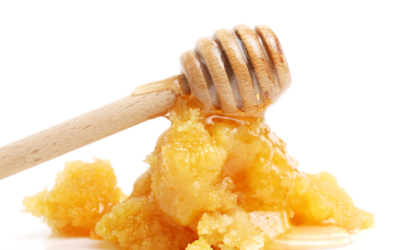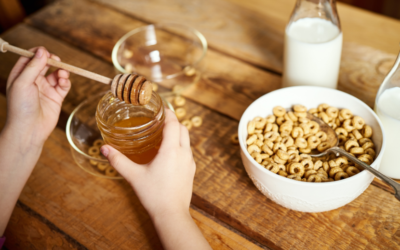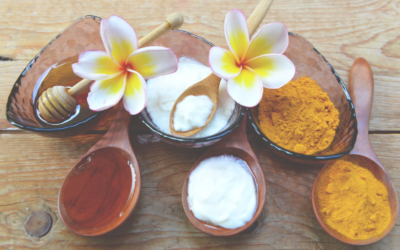Treat acne with Manuka honey
Manuka honey may be a good treatment for acne due to it’s antibacterial and antiseptic properties. It has also been commonly used for wound healing and to prevent infections. Let us find out how manuka honey may be used for acne in this article.
Components of manuka honey
Manuka Honey is made up of the following compounds:
- Hydrogen peroxide and methylglyoxal, (containing antiseptic and antibacterial properties respectively)
- Amino acids
- Sugar (glucose and fructose)
- Leptosperin (chemical found only in the nectar of Manuka plants)
- Vitamins and minerals
Properties of manuka honey
Antimicrobial
Manuka honey has an antimicrobial effect which means that it destroys or hinders the growth of all microorganisms such as bacteria, fungi and viruses. This is important for the treatment of a breakout since it may be caused by bacterial formulation in one’s pores. Manuka honey may counter just that, as it is able to counter 60 types of bacteria and anti-biotic resistant pathogens. It also helps to prevent bacteria growth due to it being hygroscopic, absorbing moisture from the skin surface when applied. This lends to an unfavorable environment for bacteria to grow on.
Wound healing
Manuka honey is on the acidic side which means it has low PH levels (between 3.2 and 4.5), which helps to hasten the wound healing process. Manuka honey also has immunity-aiding properties, which helps in wound healing as well. Honey is also viscous, which helps to form a protective layer over wound when applied and helps to prevent infections.
Anti-inflammatory
The flavonoids and other polyphenols present in manuka honey work as antioxidants that reduce inflammation in the wound. Thus, manuka honey helps to keep those red stubborn pimples at bay.
Antioxidant
The antioxidants also help to fight against reactive oxygen molecules (caused by exposure to free radicals), therefore slowing the onset of ageing.
How to Use
Manuka honey cleanser
Steps:
- Pour ½ a teaspoon of manuka honey onto your hand.
- Dilute the honey with a few drops of water and apply on your face. (Diluted honey still retains it’s antibacterial properties and even reduces it’s high sugar content)
- Message into your face and let it absorb into your skin for two minutes.
- Rinse your face and pat dry with a clean towel.
Check out the steps for making a manuka honey face mask for acne prone skin in the blog.
Manuka honey spot treatment
Steps:
- Mix one teaspoon of manuka honey with turmeric in a small bowl to form a golden paste.
- Apply it onto the problematic area using a clean makeup brush, cotton bud or your fingers.
- Leave it on for 30 to 1 hour.
- Wash off with water. For better effectiveness, apply at least twice a week.
Quality of manuka honey
The antibacterial qualities found in manuka honey is specific to manuka honey, hence other honey that is labelled as “raw”, “pure” or “organic”, may not contain antibacterial and wound healing properties. Manuka honey is high quality honey that is produced in New Zealand, and there are a few certifications to attest for the honey’s antibacterial content and quality. There is the Unique Manuka Factor (UMF) and Organic Manuka Active (OMA) certification, both of which should have a rating of 15 or more for effective acne treatment. The MGO (methylglyoxal) should also be at least 250. Hence, be sure to look out for these certifications to ensure the maximum effectiveness of honey to treat your breakouts.
Other acne treatments
Alternatively, there are other skincare products that target acne problems with some ingredients such as salicylic acid, sulfur, or resorcinol. Others with more serious breakouts should use prescription products such as isotretinoin (Accutane), topical or oral antibiotics and oral contraceptives. Methods involving devices are also available in the market, such as laser therapy, light therapy, chemical peels and photodynamic therapy. Ultimately, the type of treatment to choose depends on your budget and time constraints, as honey may be a milder but longer treatment compared with to chemical products.
Conclusion
To sum up, manuka honey is golden for treating those pesky pimples– it contains antibacterial properties, is anti-inflammatory, aids in wound healing, offers antioxidant protection which slows down ageing and moisturizes the skin. It is no wonder that manuka honey is such a highly raved product.




